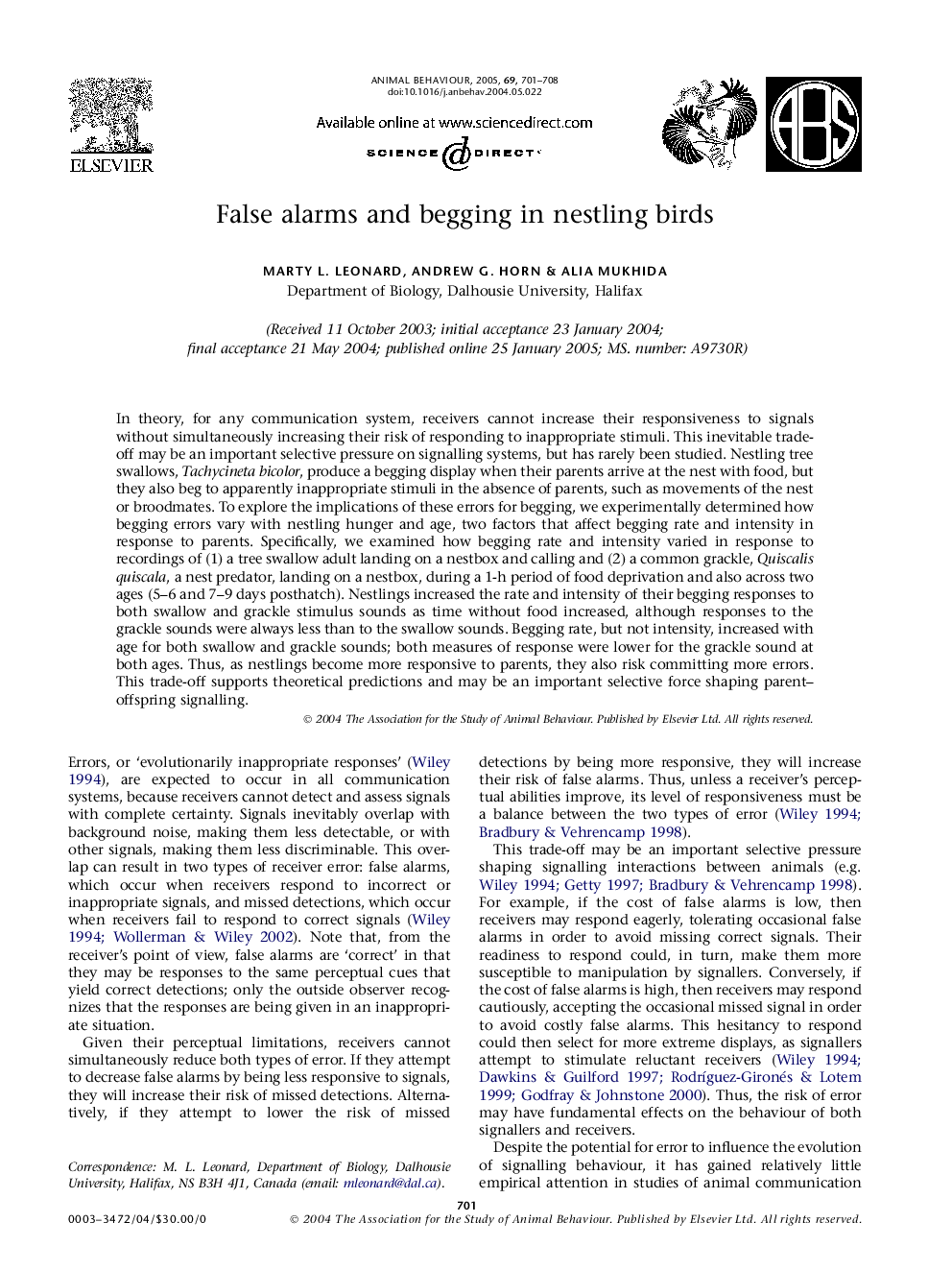| کد مقاله | کد نشریه | سال انتشار | مقاله انگلیسی | نسخه تمام متن |
|---|---|---|---|---|
| 8972060 | 1104375 | 2005 | 8 صفحه PDF | دانلود رایگان |
عنوان انگلیسی مقاله ISI
False alarms and begging in nestling birds
دانلود مقاله + سفارش ترجمه
دانلود مقاله ISI انگلیسی
رایگان برای ایرانیان
موضوعات مرتبط
علوم زیستی و بیوفناوری
علوم کشاورزی و بیولوژیک
علوم دامی و جانورشناسی
پیش نمایش صفحه اول مقاله

چکیده انگلیسی
In theory, for any communication system, receivers cannot increase their responsiveness to signals without simultaneously increasing their risk of responding to inappropriate stimuli. This inevitable trade-off may be an important selective pressure on signalling systems, but has rarely been studied. Nestling tree swallows, Tachycineta bicolor, produce a begging display when their parents arrive at the nest with food, but they also beg to apparently inappropriate stimuli in the absence of parents, such as movements of the nest or broodmates. To explore the implications of these errors for begging, we experimentally determined how begging errors vary with nestling hunger and age, two factors that affect begging rate and intensity in response to parents. Specifically, we examined how begging rate and intensity varied in response to recordings of (1) a tree swallow adult landing on a nestbox and calling and (2) a common grackle, Quiscalis quiscala, a nest predator, landing on a nestbox, during a 1-h period of food deprivation and also across two ages (5-6 and 7-9 days posthatch). Nestlings increased the rate and intensity of their begging responses to both swallow and grackle stimulus sounds as time without food increased, although responses to the grackle sounds were always less than to the swallow sounds. Begging rate, but not intensity, increased with age for both swallow and grackle sounds; both measures of response were lower for the grackle sound at both ages. Thus, as nestlings become more responsive to parents, they also risk committing more errors. This trade-off supports theoretical predictions and may be an important selective force shaping parent-offspring signalling.
ناشر
Database: Elsevier - ScienceDirect (ساینس دایرکت)
Journal: Animal Behaviour - Volume 69, Issue 3, March 2005, Pages 701-708
Journal: Animal Behaviour - Volume 69, Issue 3, March 2005, Pages 701-708
نویسندگان
Marty L. Leonard, Andrew G. Horn, Alia Mukhida,